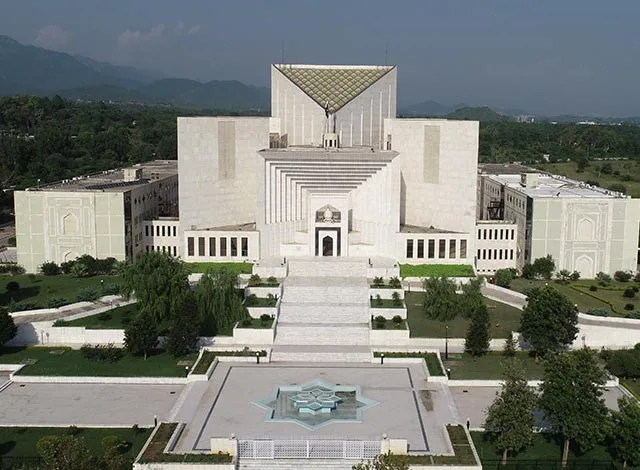
The judicial system in Pakistan is facing an existential crisis. With over 55,000 pending cases in the Supreme Court, the slow pace of justice has become a critical issue, eroding public confidence in the legal system. In light of this, the establishment of constitutional courts has emerged as a potential solution to improve the efficiency and performance of the judiciary.
Constitutional courts, which exist in countries like Germany, France, Russia, Italy, and the United States, serve the specialized function of interpreting the constitution, resolving legal disputes between government institutions, and protecting citizens’ fundamental rights. In Pakistan, where the constitution is often at the center of political and legal conflicts, such courts could play a transformative role in ensuring justice and upholding the rule of law.
The current backlog in Pakistan’s Supreme Court is a clear indication that the country’s judiciary is overwhelmed. By establishing constitutional courts, the workload of the Supreme Court could be significantly reduced. Constitutional courts would handle all constitutional matters, allowing the Supreme Court to focus on non-constitutional cases. This division of labor would streamline the judicial process, ensuring that both types of cases are addressed more swiftly and efficiently. Moreover, constitutional courts are specialized in dealing with constitutional issues, ensuring that complex cases are resolved by experts in constitutional law. This specialization is crucial for maintaining consistency in constitutional interpretations and preventing contradictory rulings. The establishment of such courts would not only speed up the legal process but also enhance the quality of judicial decisions.
One of the primary functions of constitutional courts is to protect citizens’ fundamental rights. In Pakistan, where human rights violations are a persistent issue, a constitutional court would serve as a dedicated institution to safeguard these rights. Whether it is protecting freedom of speech, ensuring due process, or preventing unlawful government actions, constitutional courts would provide citizens with a direct avenue to seek justice when their rights are infringed upon. Constitutional courts have the authority to review government actions and legislation to ensure that they align with the constitution. This judicial oversight is essential for maintaining the balance of power between government institutions and preventing any branch from overstepping its constitutional limits. In Pakistan, where executive overreach and political interference in the judiciary are common, constitutional courts would act as a bulwark against these abuses of power.
Pakistan’s political system is characterized by frequent conflicts between different branches of government. Whether it is a dispute between the executive and judiciary or a conflict between the federal and provincial governments, these institutional clashes often lead to political gridlock and undermine the functioning of the state. Constitutional courts, by acting as an impartial arbiter, could help resolve these conflicts based on constitutional principles rather than political interests. This role is particularly important in a country like Pakistan, where the boundaries between the executive, legislative, and judicial branches are often blurred. A constitutional court would provide a clear legal mechanism for resolving these disputes, ensuring that all government institutions operate within their constitutional limits. This would not only strengthen the rule of law but also enhance political stability by preventing institutional conflicts from escalating into full-blown crises.
Former Prime Minister Imran Khan has often praised the democratic and judicial systems of Western countries, particularly the United States and the United Kingdom. Yet, despite his admiration for these systems, Khan has not advocated for the establishment of constitutional courts in Pakistan, which are a key feature of the judicial systems in many Western democracies.
This raises important questions about Khan’s position on judicial reform. If constitutional courts are an essential part of safeguarding democracy and protecting citizens’ rights in countries like Germany, France, and the United States, why should Pakistan be any different? In fact, given the challenges Pakistan faces in terms of judicial efficiency, political interference, and human rights violations, the need for constitutional courts is even more urgent. By opposing the establishment of constitutional courts, Khan and his supporters are missing an opportunity to strengthen the judiciary and enhance the rule of law in Pakistan. Far from being a threat to the existing legal system, constitutional courts would complement the Supreme Court by allowing it to focus on non-constitutional matters while ensuring that constitutional issues are handled by specialized experts.
Pakistan’s judicial system is in dire need of reform, and the establishment of constitutional courts is a critical step in that direction. By improving judicial efficiency, safeguarding citizens’ rights, and resolving inter-institutional conflicts, constitutional courts would enhance the functioning of the state and protect the rule of law. The time has come for Pakistan to join other democracies in establishing constitutional courts, ensuring that justice is delivered swiftly, fairly, and impartially.
